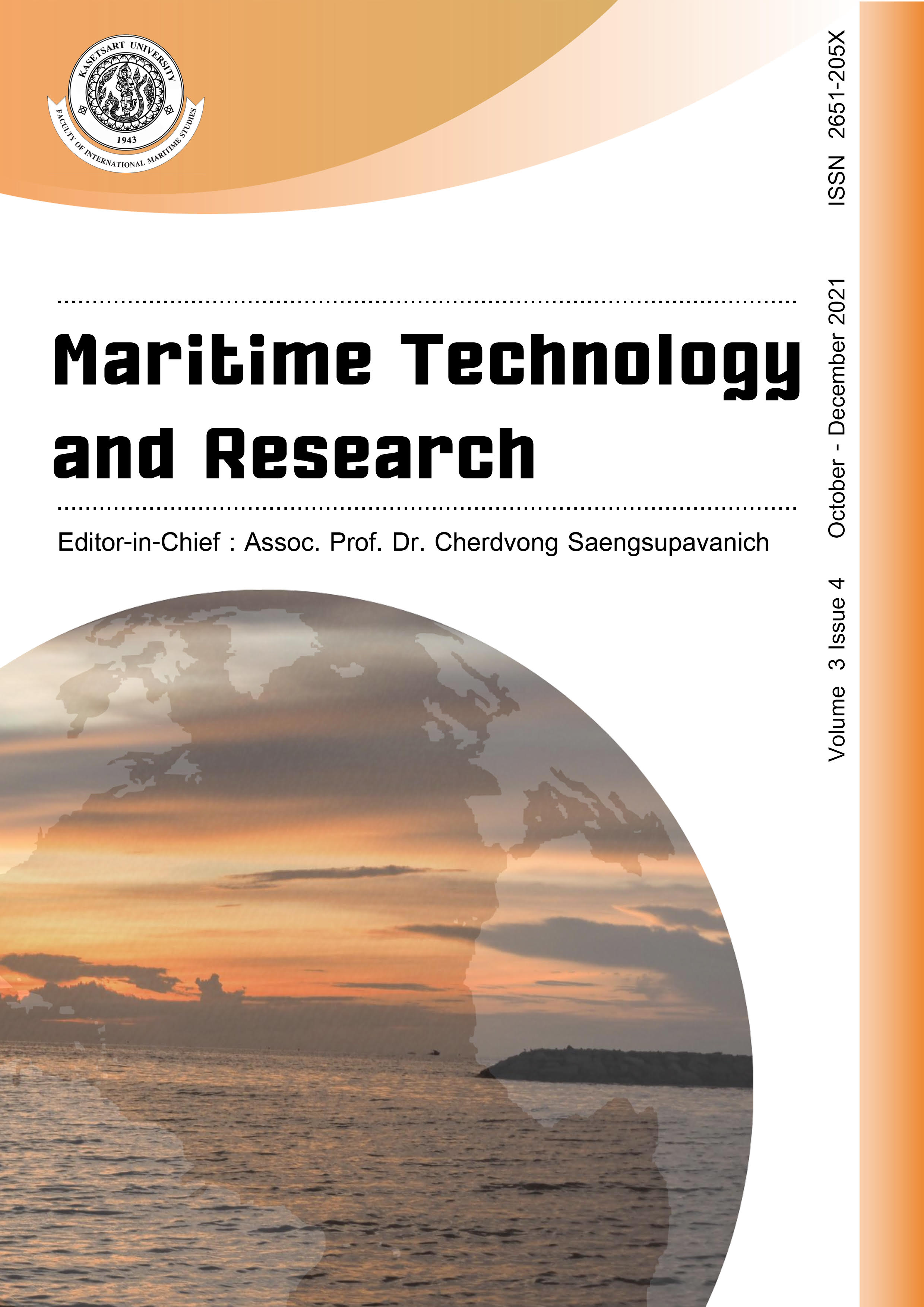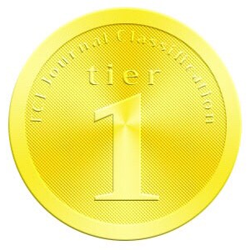Developing marine and coastal resources in Nigeria: Prospects and challenges
DOI:
https://doi.org/10.33175/mtr.2021.244473Keywords:
Nigeria, Marine resources, Prospects and challenges, Territorial sea, ShippingAbstract
Nigeria, with a coastline of about 853 km bordering the Atlantic Ocean in the area of the Gulf of Guinea, has a maritime area of about 46,000 km2, with significant and diverse natural marine resources. The country has numerous economic activities, in which the highest percentage depends on or is derived from the ocean resources, but it is explicitly clear that her blue economy potentials are far from being fully harnessed. The Nigerian maritime domain is rich with a variety of resources that support livelihoods and economic development. These include established activities like fisheries, shipping, offshore oil and gas, maritime and coastal tourism, marine manufacturing and construction, dredging, etc., and emerging activities such as marine aquaculture, deep and ultra-deepwater oil and gas, offshore wind energy, ocean renewable energy, marine and seabed mining, etc. The main purpose of this paper was to qualitatively investigate the prospects and challenges in developing marine resources in Nigeria and to suggest necessary recommendations. Existing literatures and documents from secondary sources were reviewed. The paper revealed that the challenges in harnessing marine resources in Nigeria are an inadequate scientific data bank, inconsistent government policy, climate change, and inadequate manpower. This paper recommends that the government need to enhance targeted capacity building, particularly at the policy, institutional, legal, and technical levels, for developing coastal states. This may result in effective exploration and mining, which may lead to sustainable marine resources.
References
Abubakar, H. H. (2019). A study of Nigeria’s blue economy potential with particular reference to the oil and gas sector (Master thesis). World Maritime University, Sweden.
Akinsorotan, A. M, Akinsorotan, O. A, Jimoh, J. O, Adene, I. C., & Akiwowo, U. A. (2019). Offshore aquaculture practice: A potential for meeting Nigeria fish demand: A review. Journal of Physics: Conference Series, 1299, 012111. doi:10.1088/1742-6596/1299/1/012111
Akpabio, I. A., & Ekanem, J. T. (2008). Extension needs of fish marketers in Akwa Ibom
State, Nigeria. Journal of Agriculture & Social Sciences, 4(1), 1-5.
Akpan, A. W. (2007). Total hydrocarbon, polycyclicaromatic hydrocarbon and other organic pollutants in the coastal soil, sediments and water in Qua Iboe River estuary. In Proceedings of the 21st Annual Conference of Soil Science Society of Nigeria, University of Uyo, Uyo, Nigeria.
Amnesty International. (2009). Nigeria: Petroleum, pollution and poverty in the Niger Delta. Amnesty International Publications, USA.
Boateng, I. (2006). Institutional framework in the administration of coastal and marine space in Africa. International Issues, Munich, Germany: Administering Marine Spaces, International Federation of Surveyors.
Cristelle, P., & Suva, F. (2010). Non-living resources capacity building: Challenges and opportunities. In Proceedings of the UNICPOLOS XI. New York.
Dzoga, M., Mulala, D. S., & Cosmas, M. (2020). Application of the DPSIR framework to coastal and marine fisheries management in Kenya. Ocean Science Journal, 55(2), 193-201. doi:10.1007/s12601-020-0013-y
Ehler, C., & Douvere, F. (2007). Visions for a sea change: Report of the first international workshop on marine spatial planning. Intergovernmental Oceanographic Commission and Man and the Biosphere Program, Paris: United Nations Educational, Scientific, and Cultural Organization (UNESCO).
Ekpo, E. I. (2012a). Impact of shipping on Nigerian economy: Implications for sustainable development. Journal of Educational and Social Research, 2(7), 107-117. doi:10.5901/jesr.2012.v3n7p107
Ekpo, I. E. (2012b). Diversity and condition factor of fish species of Ikpa River at Nwaniba in Niger Delta, Nigeria. FUTA Journal of Research in Sciences, 8(2), 36-47.
Ekpo, F. E., & Nzegblue, E. C. (2012). Climate change impact and adaptation opportunities on agricultural production in communities around Itu bridge-head in Itu LGA, Akwa Ibom State, Nigeria. International Journal of Environmental Sciences, 2(4), 2191-2202. doi:10.6088/ijes.002020300107
Essien-Ibok, M. A., & Umoh, I. A. (2013). Seasonal association of physico-chemical parameters and phytoplankton density in Mbo River, Akwa Ibom State, Nigeria. IACSIT International Journal of Engineering and Technology, 5(1), 146-148. doi:10.7763/IJET.2013.V5.529
Etim, L. (2010). The tragedy of the commons: Alleviating the tragedy by managing the commons in Nigerian waters. In Proceedings of the 27th Inaugural Lecture of the University of Uyo. University of Uyo, Nigeria.
Flora, A. (2007). A comparative study on marine protected areas between Australia and Tanzania. United Nations: The Nippon Foundation Fellow.
Folami, O. (2017). Towards an integrated ocean governance regime and implementation of the Sustainable Development Goal 14 in Nigeria (Master thesis). World Maritime University, Sweden.
Food and Agriculture Organization. (2018). FAO Country Programming Framework (CPF) Federal Republic of Nigeria (pp. 1-41). Federal Republic of Nigeria: Fiat Panis.
GOK/MEMR. (2010). Integrated coastal zone management policy (Draft) (p. 40). Ministry for Environment and Mineral Resources, Government of Kenya.
Helen, N. E. (2017). Exploring the potentials of marine biotechnology for poverty eradication and national development. Knowledge Review, 36(1), 1-6.
Igberi, C. O., & Ogunniyi, M. B. (2013). Has maritime transport sector impacted on the growth of Nigeria’s economy? Journal of Business and Economics, 4(8), 722-736.
Imaobong, E. E., & Mandu, A. E. (2013). Development, prospects and challenges of artisanal fisheries in Akwa Ibom State, Nigeria. International Journal of Environmental Science, Management and Engineering Research, 2(3), 69-86. doi:10.5281/zenodo.1602095
Ipinmoroti, O. (2012). Salvaging fisheries systems in the face of climate change (pp. 167-175). In Etim, L., & Oribhabor, B. (Eds). Current issues in sustainable tropical agriculture. Faculty of Agriculture, University of Uyo, Uyo.
Meiner, A. (2013). Spatial data management priorities for assessment of Europe’s coasts and seas. Journal of Coastal Conservation, 17, 271-277. doi:10.1007/s11852-011-0173-0
Moses, B. S. (2002). Tropical fisheries (p. 150). Abeam Publishing, Nigeria.
Oladele, A. H., Digun-Aweto, O., & Merwe, P. V. D. (2018). Potentials of coastal and marine tourism in Nigeria. Tourism in Marine Environments, 13(2-3), 165-173. doi:10.3727/154427318X15276699095952
Oladele, A. H., & Digun-Aweto, O. (2017). Strengths weakness opportunities and threats analysis of aquatic tourism in Nigeria. Journal of Environmental Management & Tourism, 8(6), 1259-1267. doi:10.14505/jemt.v8.6(22).13
Olalekan, J. O., & Wahab, G. O. (2018). Marine fisheries in Nigeria: A review. Intechopen Publication. doi:10.5772/intechopen.75032
Patil, P. G., Virdin, J., Diez, S. M., Roberts, J., & Singh, A. (2016). Toward a blue economy: A promise for sustainable growth in the Caribbean: An overview. The World Bank, Washington DC, USA.
Tabor, I. G. (2000). A decade (1998-1999) of fisheries Research Activities at the Nigeria Institute for Oceanography and Marine Research: Hope for self-sufficiency in fish production in Nigeria (pp. 28-29.). In Proceedings of the 18th Annual Conference of the Committee of Directors Research Institutes, NIDMR, Nigeria.
United Nations Environmental Programme (UNEP). (2014). The status of the Nigerian Coastal Zones. Retrieved from https://www.unep.org/abdjanconvention/docs
Usoro, M. (2008). Optimal utilization of Maritime manpower: The role of policy makers and stake holders. Maritime Quarterly, Lagos, Maritime Publication.
Downloads
Published
Issue
Section
License
Copyright: CC BY-NC-ND 4.0








